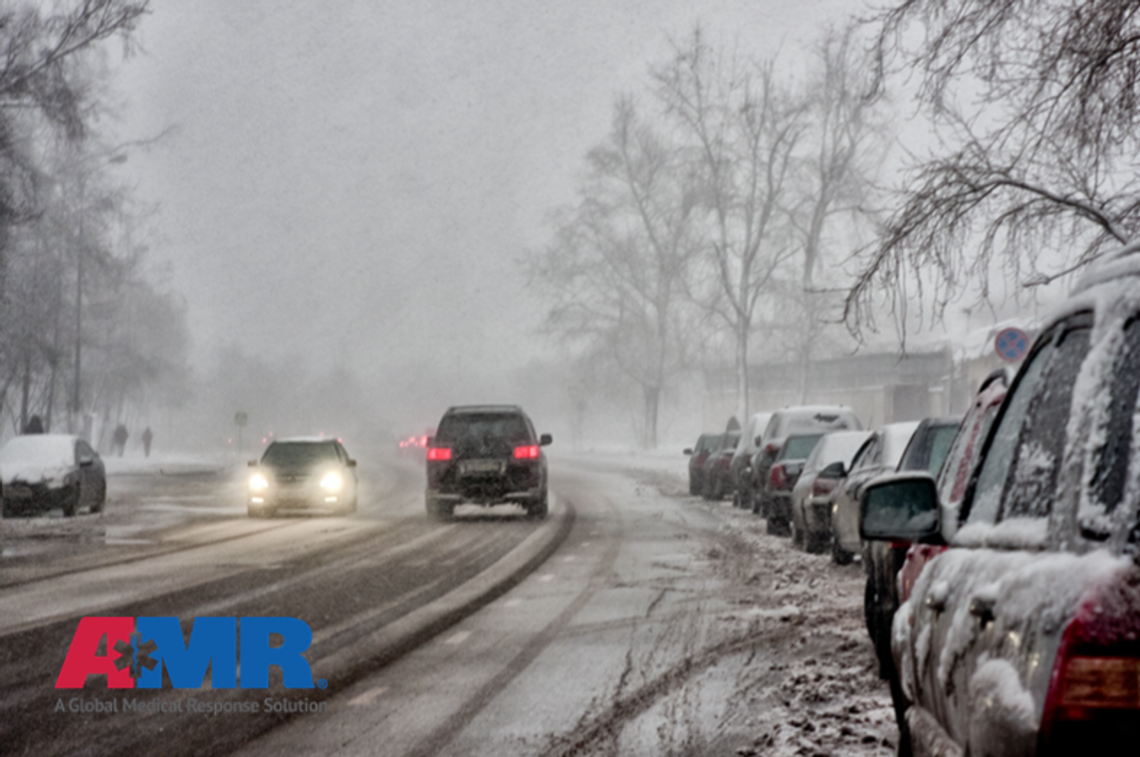- If you don’t have to drive, please stay home. Ask yourself, “Am I skilled at driving on icy roads?” If you’re not, stay home.
- If you must drive, slow down well below speed limits. Give yourself extra time to reach your destination.
- Allow more space between you and other vehicles.
- Seeing well and being seen are crucial to avoiding crashes. Before starting your trip, remove all ice and snow from your car’s windshields, windows, mirrors, headlights and tail-lights. Defog your windshields thoroughly. Turn on your low-beam lights.
- Be sure your tires, brakes, battery, windshield wipers and other safety gear are good for icy driving on ice or snow. Don’t let your fuel run low.
- Drive on interstates and divided four-lane roads when possible. Two-way traffic leads to more head-on collisions.
- When driving on ice and snow, brake only if you must. Do not “pump” anti-lock brakes. Just step on the pedal once, slowly, gradually, and steadily. With conventional brakes, gently pump the brake pedal with your heel on the floorboard and your toe on the pedal.
- Slow down before you cross bridges and patches of ice and before you go down hills. Some ice is invisible. It’s called “black ice” because it looks as though the pavement ahead is normal. Black ice often results from precipitation refreezing after a thaw.
- If you skid, take your foot off the gas pedal and shift quickly into neutral. Turn your steering wheel in the direction the rear wheels are skidding. For example, if the tail of your vehicle starts to skid to your right, turn your steering wheel to the right until the vehicle straightens out. Shift back into drive and gently accelerate.
- If you crash, pull all the way off the road. Turn your flashers on. Get out on the passenger side, because there is greater risk of other drivers skidding into the driver side. Stand on the passenger side.
- No matter how short the trip, buckle up everyone in your vehicle.
- Dress warmly, in case of a breakdown or a crash.
- In your trunk, carry a couple of burlap bags or short wooden planks and a shovel to help with traction if you get stuck.
- Put in some pop-top canned food, energy bars or other food that’s easy to open plus extra clothing and a blanket.
- Be sure your cell phone keeps a good charge.


Comment
Comments